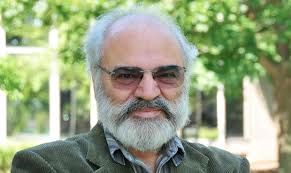Event

Hamid Naficy
Writing the Social History of Iranian Cinema
This talk focuses on the just released 4-volume book, A Social History of Iranian Cinema, a work that took nearly four decades to complete. The volumes’ overarching argument is the significant and signifying role of film and cinema in overdetermining modernity in Iran. As a work of social history and theory, these books deal not only with the chronological political developments in society and in the film industry but also with the synchronic contexts, formations, dispositions, and maneuvers that overdetermined modernity in Iran and a dynamically evolving film industry and its unique products. Naficy locates the film industry and its mode of production, narratives, aesthetics, and generic forms in the interplay of deeply rooted Iranian performative and visual arts and what was imported, adopted, adapted, translated, mistranslated, and hybridized from the West. The interplay between Iranian and Islamic philosophies and aesthetics complicated and channeled cinema, particularly that involving women, in certain specific ways unique to Iran. Likewise, the contribution of Iranian ethnoreligious minorities, both widespread and profound, gave Iranian cinema additional specificity.
Hamid Naficy is Professor of Radio-Television-Film and the Hamad Bin Khalifa Al-Thani Professor in Communication at Northwestern University, and he has an affiliate faculty appointment in the Department of Art History. He is a leading authority in cultural studies of diaspora, exile, and postcolonial cinemas and media and of Iranian and Middle Eastern cinemas. His areas of research and teaching include these topics as well as documentary and ethnographic cinemas. Naficy has published extensively on these and allied theories and topics. His English language books are: An Accented Cinema: Exilic and Diasporic Filmmaking; Home, Exile, Homeland: Film, Media, and the Politics of Place (edited); The Making of Exile Cultures: Iranian Television in Los Angeles; Otherness and the Media: the Ethnography of the Imagined and the Imaged (co-edited); and Iran Media Index. His latest work is the four-volume book, A Social History of Iranian Cinema, which was published in 2011-12. He has also published extensively in Persian, including a two-volume book on the documentary cinema theory and history, Film-e Mostanad. He has lectured widely internationally and his works have been cited and reprinted extensively and translated into many languages.
